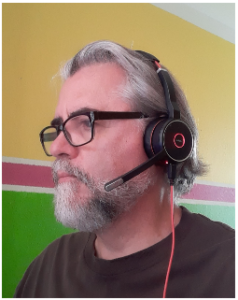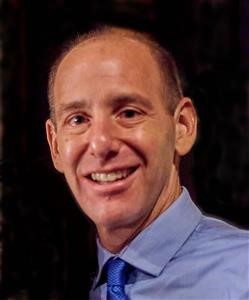ASML is an innovation leader in the semiconductor industry, and their machines have modules with fairly massive and fast (~100 kg, 3 m/s) scanning stages. Students on the ASML team will design a (semi-passive) deceleration system for our newest stage to come to a stop safely in the event of a control failure, thus enabling it to run at full speed (5 m/s) safely.
Abstract:
ASML is an innovation leader in the semiconductor industry manufacturing complex lithography systems critical to the production of microchips. The tables that load and position the wafer in the system, known as stages, glide on air bearings over granite guideways. They are powered by coreless linear permanent magnet motors, which can develop high forces and provide high acceleration/deceleration to the stages. A failure in the servo controls can cause a runaway situation, in which the kinetic energy of the stage has to be absorbed by passive means. We are interested in exploring solutions where the air bearings become a braking system, combined with developing more effective crash buffers. Students on the ASML team will design a (semi-passive) deceleration system for our newest stage to come to a stop safely in the event of a control failure, thus enabling it to run at full speed (5 m/s) safely
Impact:
Having a better Stage Emergency Deceleration System would enable us to design faster stages, for more throughput, which would mean our machines would deliver higher value to our customers. We compete fiercely on cost per chip. The faster our machine can print chips, the lower the cost per chip printed by our customer. Then the lower the cost of manufacture of cellphones, computers, etc.
Full Project Details
Mechanical Design (2-3 students)
Specific Skills: Mechanical Design; Techniques for fast prototyping. Experimental Testing and Evaluation.
Likely Majors: ME
Mechanical Analysis (2-3 students)
Specific Skills: Hand Calculations, Excel, FEA
Minimum completion of MECHENG 305 Introduction to Finite Elements in Mechanical Engineering.
Desired completion of MECHENG 505 Finite Element Methods in Mechanical Engineering.
Likely Majors: ME, AERO, NAME, CEE
Systems Integration (1-2 students)
Specific Skills: Systems engineering, broad well-established engineering skills.
Mechatronics, controls, and system integration. CAD, fabrication
Likely Majors: CE, ME, EE, ISD-Systems
Sponsor Mentors

Santiago del Puerto
Santiago del Puerto has his BSME and MSME from Columbia University ’82 ‘83 He worked for IBM from 1983 – 1994 in Test Equipment Engineering (Wafer Final Test). He has worked at ASML since 1997 on multiple projects in Deep UV and Extreme UV lithography, mostly scanning stages, especially lately. He worked in a huge machine shop between ’94 and ’97, making just about anything imaginable. Managed to live through it without being buried alive, electrocuted, etc. while keeping all my fingers (I can tell some good stories). It was a lot of fun but didn’t pay very well. Hobbies: Bicycle designing, building and riding, Propagating plants and trees. Juggling. Anything mechatronic-like that comes across my path needing improving, cost reducing or fixing.
Executive Mentor

Ken Bogursky
Ken Bogursky is the Director of Mechanical Development at ASML in Wilton, CT. He has 25 years experience in the semiconductor equipment industry with the past 21 years at ASML developing next generation photolithography systems that push the boundaries of technology in terms of resolution, precision, and speed. At ASML, he’s held positions as a Mechanical Design Engineer, Team Lead and Architect, Project Manager, Group Lead, and Department Manager. Ken has a Bachelor’s degree in Mechanical Engineering from Cornell University and a Master’s degree from Rensselaer Polytechnic Institute.
https://www.linkedin.com/in/ken-bogursky/
Faculty Mentor

Wei Lu
Professor, Mechanical Engineering
Professor Wei Lu’s research interests include Energy storage and electrochemistry; simulation of nano/microstructure evolution; mechanics in nano/micro systems; advanced manufacturing; mechanical properties and performance of advanced materials and relation to microstructures.
Course Substitutions:
Citizenship Requirements: This project is open to all students on campus.
IP/NDA: Students will sign standard University of Michigan IP/NDA documents.
In Person/Remote Participation Options:
Most of the work will take place on-campus in Ann Arbor.
Students on this team must be able to be physically present on campus in Ann Arbor to work on physical prototypes as local safety protocols allow.
Internship/Summer Project Activities: Students will be guaranteed an interview for a 2022 internship. The interviews will take place between January and February of 2022.
